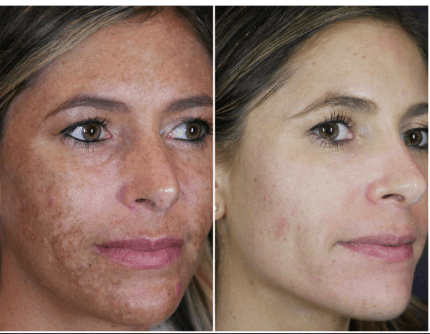- Nutrition made easy by Paolo Lamparelli
- Posts
- Issue no. 105:🥑How keto can benefit your health beyond weight loss: from nerve protection to skin health
Issue no. 105:🥑How keto can benefit your health beyond weight loss: from nerve protection to skin health
Reading time: 3 minutes
Welcome to Nutrition Made Easy!
🍵Grab a cuppa and settle in, let's debunk diet myths and simplify nutrition science so you are empowered to make smarter health choices.
This week’s articles:
💉Ketogenic diets and weight loss jabs: A common goal
🥑 The surprising connection between ketogenic diets and skin health
🧀 Ketogenic diet and spinal cord protection: How mitochondria play the key role
💉Ketogenic diets and weight loss jabs: A common goal

When it comes to managing weight and improving metabolic health, two buzzwords keep popping up: ketogenic diets and GLP-1 agonists.
They seem worlds apart, but recent research suggests they may share surprising similarities in how they work.
Ketogenic therapy: This is a high-fat, very low-carb eating plan that pushes your body into ketosis - a state where fat becomes your main fuel source instead of glucose. This shift can lead to weight loss, better blood sugar control, and even improved energy levels.
GLP-1 agonists: These are drugs originally designed for diabetes management, now widely used for weight loss. They mimic a natural hormone called GLP-1, which helps regulate appetite, slows digestion, and improves blood sugar control.
The surprising overlap
The study highlights that both approaches influence metabolic pathways in similar ways:
Appetite regulation: Ketosis naturally reduces hunger signals, while GLP-1 agonists act on the brain to curb appetite.
Blood sugar control: Both strategies improve insulin sensitivity and stabilise glucose levels.
Energy efficiency: Ketogenic diets shift the body to fat-burning mode; GLP-1 agonists optimise how we use energy and store fat.
This is not a shortcut for weight loss and better health, but a metabolic synergy.
GLP-1 agonists influence neural control of appetite, while ketosis creates an energetic and hormonal environment that supports those effects.
🥊 Summary
The ketogenic diet does not replace GLP-1 therapy, but complements it. GLP-1 agonists do not substitute clinical nutrition, they enhance it.
🥑 The surprising connection between ketogenic diets and skin health

Recent research is uncovering how high-fat, low-carb eating patterns might benefit skin health through complex metabolic and inflammatory pathways.
Why skin health matters
The skin is the body’s largest organ and a frontline defence against the outside world.
Conditions like acne, eczema, and psoriasis often involve inflammation and oxidative stress, which can be influenced by what we eat.
This is when keto comes into play.
The shifts to ketosis - where fat becomes the main fuel source and ketone bodies (like beta-hydroxybutyrate) rise - does more than provide energy.
Ketones act as signalling molecules that:
Modulate pathways involved in cell repair and barrier function
Influence the gut microbiota, which indirectly affects skin through the gut-skin axis
Provide a more stable energy source for skin cells under stress
Practical tips if you are thinking of going keto
Focus on healthy fats like oily fish, eggs, avocado, olive oil, and nuts, rather than processed fats.
Include plenty of micronutrient-rich foods (leafy greens, seeds) to support overall skin health.
Stay hydrated as ketosis can increase water loss.
Remember: Keto isn’t for everyone. Always consult a healthcare professional before making major dietary changes.
🥊 Summary
A ketogenic diet could help your skin thrive by reducing inflammation and supporting cellular health. Science is still evolving, but the link between nutrition and skin is stronger than ever.
🧀 Ketogenic diet and spinal cord protection: How mitochondria play the key role

When we think of the ketogenic diet, weight loss and blood sugar control usually come to mind.
But recent research is uncovering fascinating links between ketosis and the health of our nervous system; particularly through the mitochondria (aka the powerhouses inside our cells)
Why mitochondria matter
Mitochondria are often called the “batteries” of our cells because they produce energy. In the spinal cord, they’re critical for nerve function and repair.
When injury or disease strikes, mitochondrial dysfunction can lead to cell damage and inflammation, making recovery harder.
So what about the ketogenic diet?
By drastically reducing carbs and increasing healthy fats, the ketogenic diet shifts the body into ketosis, where fat becomes the primary fuel source.
This metabolic switch produces ketone bodies, which do more than just provide energy because they also:
Reduce oxidative stress (damage caused by free radicals)
Improve mitochondrial efficiency
Support anti-inflammatory pathways
The study suggests that ketones act as a cleaner, more stable energy source for neurons. The effects could help protect nerve cells and potentially improve outcomes after spinal cord injuries or in neurodegenerative conditions.
It’s still early days. Clinical applications are still being explored, and individual needs vary.
However, the results highlights the incredible connection between nutrition and nervous system health
🥊 Summary
Keto diets aren’t just about weight loss. The impact on mitochondrial pathways could open new doors using ketogenic diets are therapeutic approach for protecting and supporting neurological health.
And finally!
🌟If you want tailored nutrition and lifestyle plans, you can apply for 1-on-1 sessions with me here
🌟If you enjoy the free education and are keen to support, consider buying me a coffee here
To your health!
Hungry for more reading?
Why not read the most read articles?
Reply